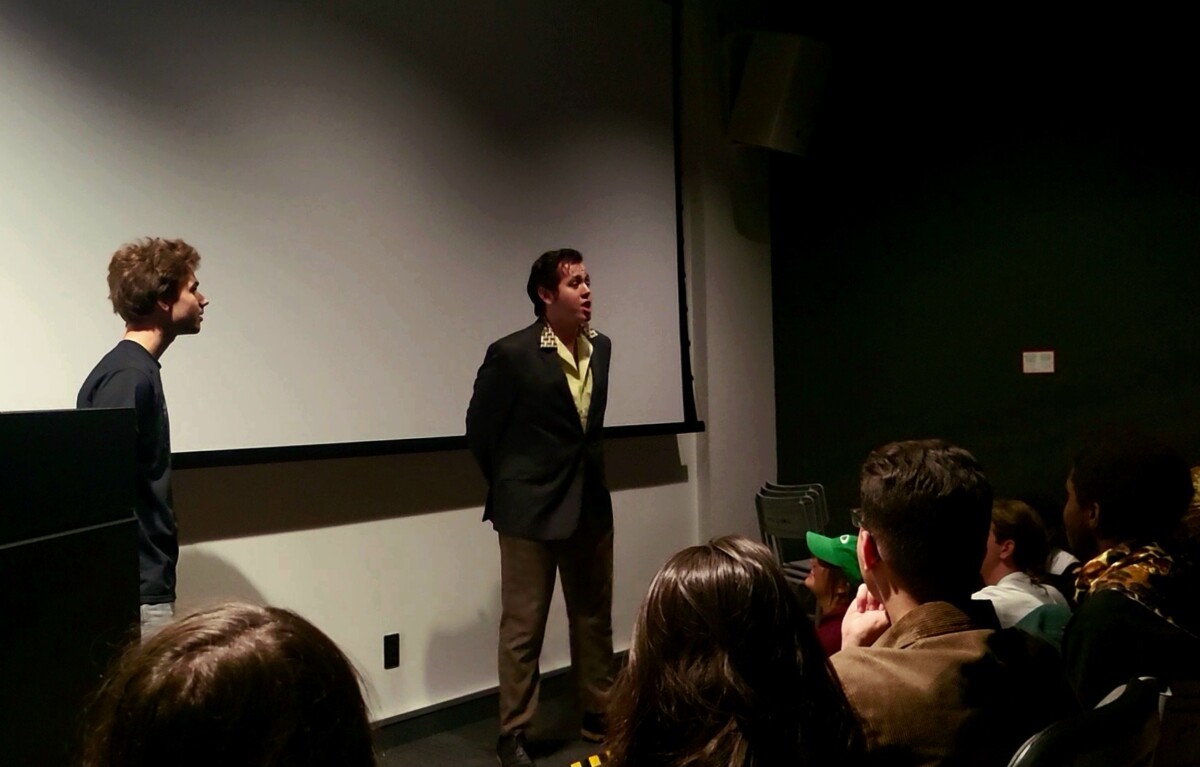Concordia’s Moving Image Arts Collective organized a completely sold-out screening of student films.
On Sept. 15, as the penultimate event of FASA Fest, students gathered in the VA building auditorium to watch a selection of student work that varied widely in aesthetic and approach. At full capacity, this screening had the largest turn-out of any MIA event so far.
The Moving Image Arts Collective (MIA) is a student organization funded by Concordia’s Fine Arts Student Alliance (FASA) that aims to build a community of film enthusiasts within the university. Through their screenings and roundtable events, MIA offers opportunities for students to present their completed or in-progress work to their peers, gain invaluable feedback, and forge connections that lead to collaboration.
A highlight of the event was the persona of Elvis Presley acting as the moderator—a presence that truly enlivened the energy of the space. In an art world that can often be characterized as stuffy, serious and pretentious, this generous degree of playfulness and comic relief offered a refreshingly light atmosphere.
The range of filmmaking styles included in the screening showcased the brilliance and creativity of Concordia’s fine arts students. The films shown were both independently-produced and affiliated with course assignments. All of them stood as testaments to the unique vision of each filmmaker and their dedication to quality work.
The screening opened with an emotional and captivating poetic monologue piece on the precarity of pursuing one’s passion as relationships slip away to time. As the line-up progressed, a few recurring themes emerged that would transcend through many of the films: self-discovery through a sense of loss—be that the loss of childhood, homeland or family members—or through transgression, exploration and dreaming.
A home video sourced from family archives told a nostalgic coming-of-age story; an irreverent documentary charted the mission of three roommates to gain roof access through a portal in the ceiling; a disturbingly corporeal claymation toyed with the limits of intimacy between partners. The threads of identity and investigation weaved through all of the pictures as they followed one another.
The event did not include a discussion or Q&A with the filmmakers—a choice that stole the opportunity to hear more from the artists on their motivations and process. Rather, the audience followed Elvis to a karaoke night complete with a raffle and snacks to Concordia’s campus bar, Reggies.
Stay tuned for more FASA and MIA events and opportunities through their Instagram accounts: @fasalovesyou and @movingimagearts.
